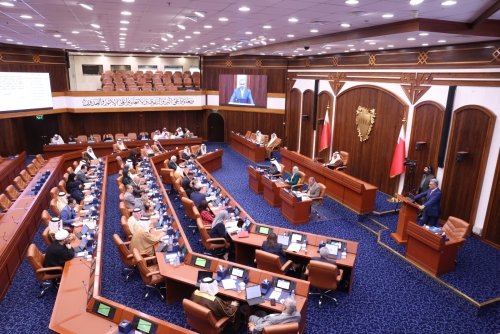Bahrain Shura Council shields doctors, teachers from domestic-violence reporting duty
TDT | Manama
The Daily Tribune – www.newsofbahrain.com
The Bahrain Shura Council has rejected a proposal to criminalize doctors, teachers, and domestic workers who fail to report domestic violence. The move sparked debate, with proponents arguing it empowers bystanders to act, while opponents warn it risks ensnaring professionals in sensitive family matters.
The proposed amendment, championed by the Council of Representatives, aimed to impose fines and even imprisonment on those who witnessed domestic violence but stayed silent. However, the Shura Council, after careful consideration, sided with its Women and Children Affairs Committee, which deemed the amendment unnecessary and potentially harmful. Their concerns? Firstly, the law already penalizes domestic violence itself, making additional reporting requirements for bystanders redundant.
Secondly, the broad scope of the amendment could drag doctors, teachers, and domestic workers into family conflicts, potentially violating their professional boundaries and even the “sanctity of the family.” Furthermore, the committee argued that punishing someone for not reporting an incident they learned about casually, outside their professional duties, could have perverse consequences. Imagine a case where the victim chooses not to press charges; the potential reporter would then face the penalty, not the perpetrator.
Ambiguity of Amendment
Another concern raised was the ambiguity of the amendment. Who exactly qualifies as someone who becomes aware of domestic violence “through their work”? This vagueness, the committee argued, clashes with the principle of clear and specific criminal laws. Finally, the committee compared Bahrain’s approach to that of other Arab nations. Most countries, like the UAE and Lebanon, don’t criminalize non-reporting.
Some, like Qatar, rely on existing penal codes. And a few, like Jordan, impose minor penalties, like fines or short jail terms. Ultimately, the Shura Council’s decision reflects a cautious approach to tackling domestic violence, prioritizing victim protection and family privacy over a blanket reporting requirement for certain professions.
The debate, however, is far from over, highlighting the complex challenges of balancing individual responsibility with family dynamics and professional ethics in the fight against domestic abuse.
Related Posts

